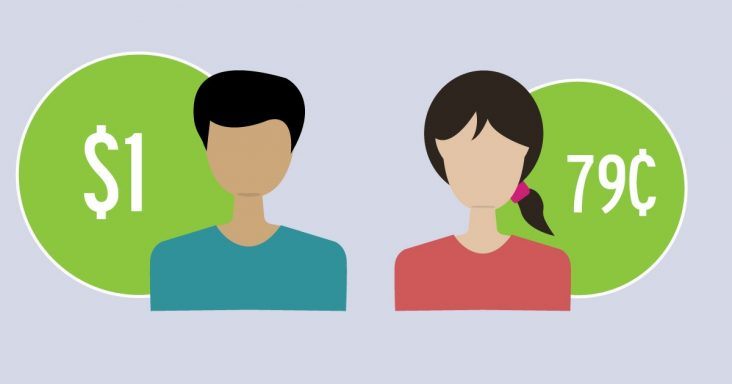Salary negotiation workshop, panel discussion tackle gender wage gap
by April 11, 2019 3:52 pm 1,387 views

In Arkansas, women are paid 79% of men’s earnings, according to the latest Census Bureau Information (2017). Research shows the cause of the gender pay gap is that women simply don’t ask for more money.
In order to close the pay gap and help women develop skills in self-advocacy and confidence in negotiation, the Northwest Arkansas chapter of Network of Executive Women (NEW) hosted a workshop and panel discussion at the John Q. Hammons Convention Center in Rogers on Thursday (April 11).
The event was led by the American Association of University Women (AAUW), an organization working to closing the gender pay gap through advocacy, research and public education.
The workshop was designed to help women “learn to identify and articulate your value, develop negotiation strategies, apply persuasive responses and gain exposure to research and benchmark tools to achieve the outcome you want,” according to a NEW press release.
During the workshop, Gloria Blackwell, AAUW senior vice president, and Alex Howley, AAUW program manager of pay equity programs, instructed attendees on how to negotiate salary.
“You are your own brand,” Howley said in encouraging women to be their own best advocate.
Howley told attendees that keeping a weekly journal of accomplishments, thinking about how what they do fits into the company’s big picture and offering real data to back up their contributions are ways to advocate as they begin the discussion for more pay.
Howley also encouraged women to assess the market by researching salary range and benefits at sites like salary.com and payscale.com. Remembering that benefits are an important part of overall compensation is also key, as sometimes great benefits make up for a lower salary, she said.
In salary negotiations, having a strategy and practicing what you will say is key to improving your ability to be objective, persuasive and strategic, Blackwell and Howley told attendees.
Following the workshop, a panel discussion entitled “Advocating for Your Career” was facilitated by Bethany Stephens, president of Bentonville marketing and advertising agency Soapbox Influence.
Candice Chang, group director with the Coca-Cola Co.; Scott Creer, associate director of human resources with Procter & Gamble – Walmart Customer Team; Melissa Oesterreich, chief people office with Advantage Solutions; and Denise Natishan, senior partner with Cameron Smith & Associates all shared their experiences in advocating for their careers and gave advice for women.
Natishan advised women to know the salary range for their position before going into negotiations for pay. Don’t ask for anything unrealistic, but “give the person that you’re sitting across from a reason to want to give you a raise. Prove your worth to them,” she said.
Remember “it’s not a battle, it’s a conversation,” Oesterreich said. “So, go in armed with information, but know you are in a friendly environment.” She said she is impressed when individuals come in, thinking about the best interests of the company and say, “I really want to be able to do more for this company and this is the way I see myself doing that.”
Oesterreich also advised women to look for stretch assignments. “I always looked for the opportunity to get myself out there…I wasn’t afraid to jump out of my swim lane…” That also provided her with invaluable networking connections. She said it allowed her to have exposure to different facets of the organization in ways she hadn’t previously imagined.
“Seek those opportunities out and don’t be afraid to raise your hand,” she said.
In giving career advocacy tips, Chang encouraged women to always be curious about all areas of the organization and ask lots of questions in order to understand all aspects of the business.
“Take the risks that you’re afraid of. Do something that’s out of your comfort zone that’s going to challenge you to be better,” Chang said. She remembers a mentor told her, “Don’t be afraid to do something that you think you’re dumb at.”
Founded in 2001, NEW represents more than 12,000 members, 825 companies, 100 corporate partners and 22 regions in the U.S. and Canada “advancing all women and building business.”
